Iran using AI for precise missile strikes, says IRGC chief
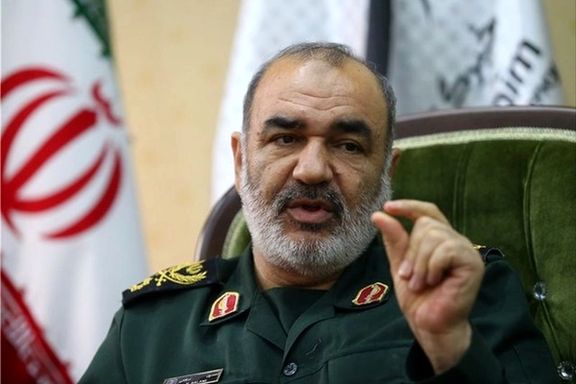
Iran’s Islamic Revolutionary Guard Corps (IRGC) has integrated artificial intelligence (AI) into its missile systems to improve precision, it's commander-in-chief said Sunday.

Iran’s Islamic Revolutionary Guard Corps (IRGC) has integrated artificial intelligence (AI) into its missile systems to improve precision, it's commander-in-chief said Sunday.
“With artificial intelligence, we have developed technology to strike targets without harming innocents,” Hossein Salami said Sunday at an event honoring Iranian medical staff who treated Hezbollah members injured in the September 2024 pager attacks.
The Israeli operation targeted thousands of pagers and hundreds of walkie-talkies used by Hezbollah members in Lebanon and Syria, killing at least 32 people and injuring over 3,250.
Salami described the pager attacks as “akin to weapons of mass destruction,” aimed at dismantling morale and creating chaos.
Last year, in a first, Iran launched two direct attacks on Israel with hundreds of missiles fired at the Jewish state, along with rockets and drones.
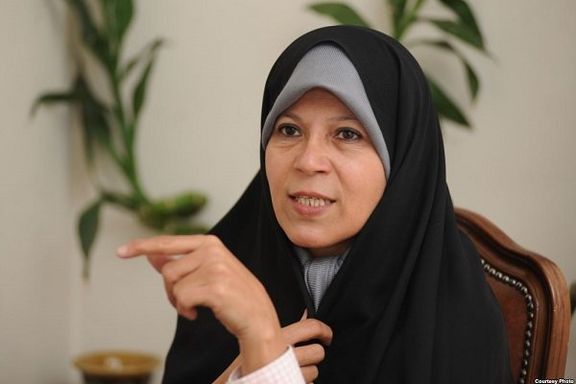
Some of Iran's Reformist politicians have recently called for a secular government; a notion that is in sharp contrast with the religious governing system that has been ruling in Iran since the 1979 Islamic revolution.
The most recent case is Faezeh Hashemi, a former Reformist lawmaker and daughter of a former Iranian president, who was recently released from prison in Tehran after serving part of her sentence for supporting the 2022 protests. In a YouTube interview this week, she said, "I am against religious government," and asserted her belief that "Iran needs to have nuclear bombs."
The Reformist movement, which emerged in Iran at the turn of the century, simply aspired for more respect for the rule of law, more democracy and less dogmatic rigidity, but it was considered to be part of the Islamic Republic.
Faezeh Hashemi, the outspoken daughter of former President Akbar Hashemi Rafsanjani, was a leading member of Iran's fifth parliament [1996-2001). She was popular for her ideas about women's social liberties at the time and later. She was also the publisher of the daily newspaper Zan [Woman], which was banned by the Islamic government in 1999.
Most of the issues she discussed in the interview turned out to be controversial. According to Rouydad24 website, which is a relatively moderate source, only she could have been expected to express such views.
Hashemi remarked that "The stage for the latest presidential election was orchestrated to guarantee Pezeshkian's victory." She added that, "Khamenei and Pezeshkian have reached an agreement to address some of Iran's fundamental issues."
Recommending major changes, she commented, "I believe the Iranian political system should change its doctrine about domestic political issues and some foreign policy matters about the region."
However, in a statement somewhat at odds with her reformist views on domestic politics, Hashemi declared, "I believe in possessing a nuclear bomb. While the world has embraced nuclear deterrence, why should we deprive ourselves of it?"
On a key foreign policy issue, she said: "We have to maintain relations with the United States and that will be made possible only through opening our embassies in each other's countries."
Explaining her political leanings, she said, "Like my father, I am a conservative who wants reforms." She also claimed that her father's death during an afternoon swim in January 2017, while under the watch of several IRGC officers, "was not due to natural causes." Additionally, she remarked, "I have heard that former President Raisi's family suspects his death in a 2024 helicopter crash was suspicious."
In a highly controversial statement that contradicts Supreme Leader Ali Khamenei's narrative about enemies conspiring against the Islamic Republic, Faezeh Hashemi declared, "I absolutely do not believe in enemies!" She also expressed her opposition to the imposition of religion and compulsory hijab on women, stating, "I wear hijab myself, but I support women who choose not to."
In another significant development last week, prominent reformist commentator Abbas Abdi questioned the commitment of Islamic Republic officials to the concept of a religious government. Writing in Etemad newspaper, he stated, "Republics are founded on the people's vote. What happens if the people say they no longer want a religious government?
Criticizing the ideas of Ayatollah Mesbah Yazdi, the ideological architect and patron of ultraconservative groups like the Paydari Party, which advocate for an Islamic government over an Islamic Republic, Abbas Abdi wrote: "In Iran’s current system of governance, if a significant portion of the population openly opposes a religious government, the country’s religious leader would be compelled to confront them and impose the religious government and its laws by force."
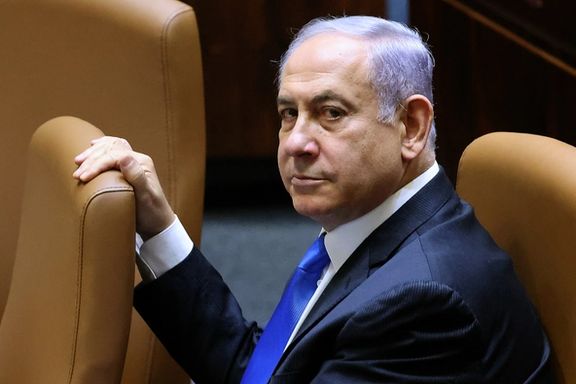
Israeli Prime Minister Benjamin Netanyahu said on Saturday his country has "hurt the entire Iranian axis and it can still do more."
"If we must return to fighting, we will do that in new, forceful ways," the Israeli prime minister said.
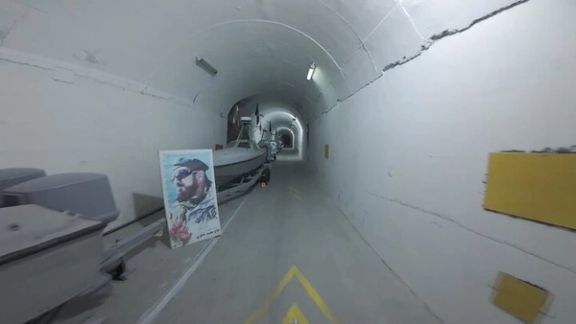
Iran's Revolutionary Guards unveiled an underground naval missile base at an undisclosed Persian Gulf location on Saturday two days before Trump's return to the White House.
The base is one of several built underground for vessels capable of launching long-range missiles and carry out distant warfare, IRGC Chief Commander Hossein Salami said after visiting the secret base during war games.
Footage released by IRGC-affiliated media and the state TV showed tunnels with long rows of "a new version of Taregh-class radar-evading speedboats which can launch cruise missiles."
The base was built at a depth of 500 meters (yards) somewhere in the Persian Gulf, according to the state TV report.
Iran started massive military exercises earlier this month that are due to last two months and have already included war games in which the IRGC defended nuclear installations in Natanz against mock attacks by missiles and drones.
The drills are held at a time when tension with the United States is widely expected to rise following Donald Trump's inauguration.
Tehran is concerned that Trump might empower Israeli Prime Minister Benjamin Netanyahu to strike Iran's nuclear facilities.
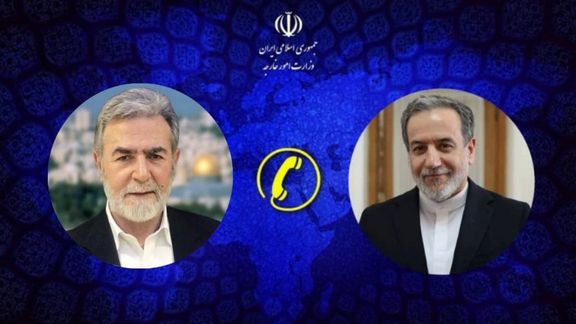
Iran's Foreign Minister Abbas Araghchi on Saturday underlined Tehran's "steadfast" stance in supporting the Resistance Front against Israel.
Speaking in a Saturday phone conversation with the Secretary General of the Palestinian Islamic Jihad, Araghchi said the recent ceasefire deal was a result of the Palestinian people's 15-month struggle against Israel.
"This resistance ultimately forced the (Israeli) regime to surrender and accept the ceasefire agreement," Araghchi said, according to the Iranian Foreign Ministry's readout of the call.
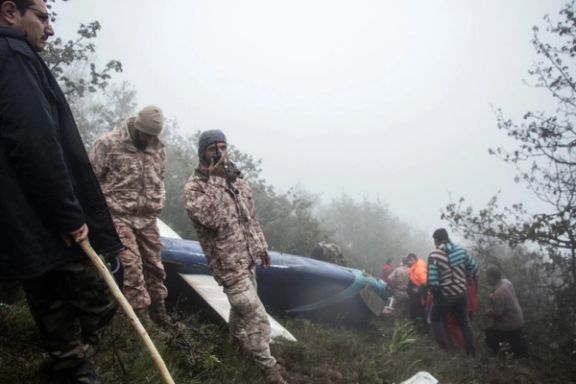
The Iranian Armed Forces released a statement on Saturday, rejecting any suggestion that the helicopter crash involving President Ebrahim Raisi was caused by anything other than bad weather.
This comes after an interview with a family member of Raisi cast new doubts on the official explanation of an accident.
“These claims are far from the truth and appear to be either a result of ignorance or presented with particular intentions,” the statement said. It emphasized that “The cause of the helicopter crash that led to the martyrdom of Ayatollah Raisi and his companions was solely ‘the complex weather and geographical conditions of the area.’”
On May 19, 2024, a helicopter crash in northwestern Iran killed everyone on board, including President Ebrahim Raisi, Foreign Minister Hossein Amir-Abdollahian, and several others. The president was returning from a visit to a dam project, with three helicopters carrying the official delegation. The other two helicopters completed their flights without issue.
On Friday, Mojtaba Mousavi, the brother of Mehdi Mousavi, head of Raisi’s security team, said in an interview that his brother had been opposed to the trip to the Republic of Azerbaijan border but had to proceed under pressure from the president’s office.
Speaking to the Iran24 website, Mojtaba said: “Seyyed Mehdi did everything he could to cancel the trip but couldn’t. He even sent a formal letter, with a copy to the IRGC commander, saying that the IRGC Protection Unit opposed the trip but, as part of its duty, would accompany the president.”
He added that Gholamhossein Esmaeili, Raisi’s chief of staff, had insisted that Raisi is determined to make this trip.
Mojtaba recalled his brother saying: “Where should I take him? To the zero-point of the border? They have surveillance over Iran; it’s near Israel’s neighbor, Aliyev’s territory.”
Iranian officials and political figures have previously raised the possibility of intentional sabotage.
Last month, Iranian lawmaker Kamran Ghazanfari accused the United States, Israel, and Azerbaijan of plotting the crash. Speaking at a conference, he rejected the weather-related explanation, calling it “implausible.”
“Everyone would laugh at the officials’ explanation that Raisi’s helicopter crashed due to weather conditions and dense clouds,” he said. He hinted at an assassination plot involving foreign powers.
The US State Department has denied any involvement. Spokesperson Matthew Miller said in May that Iran had sought help after the crash but said logistical constraints prevented the US from assisting. “We were asked for assistance by the Iranian government,” Miller said in May. “Ultimately, largely for logistical reasons, we were unable to provide that assistance.”
Leadership rivalries and whispers of political sabotage
Beyond accusations of foreign sabotage, some Iranians have pointed to internal rivalries. Mehdi Nasiri, a former editor of the hardline Kayhan newspaper, suggested Raisi’s death might have been tied to succession plans for Supreme Leader Ali Khamenei.
Nasiri speculated that Raisi’s crash could have been orchestrated by those backing Mojtaba Khamenei, the Supreme Leader’s son, as his father’s successor. “In the last session of the previous Assembly of Experts, representatives spoke about Mojtaba Khamenei’s leadership, which was met with reactions from figures like Raisi and others,” Nasiri said. He noted that Raisi’s death coincided with leadership changes in the Assembly, including the removal of figures opposing Mojtaba’s succession.
The Assembly has the constitutional power to determine Iran's next Supreme Leader.
The deaths of Raisi and others, such as Hamas leader Ismail Haniyeh in Tehran, have raised fears of heightened threats to Iran’s leadership from both foreign and domestic sources. While Israel has denied involvement in Raisi’s crash, speculation persist. An unnamed Israeli official told Reuters in May, “It wasn’t us.”
Despite denials, figures like Ghazanfari continue to claim foreign interference, reflecting the tensions in Iran’s complex relationships with its adversaries.